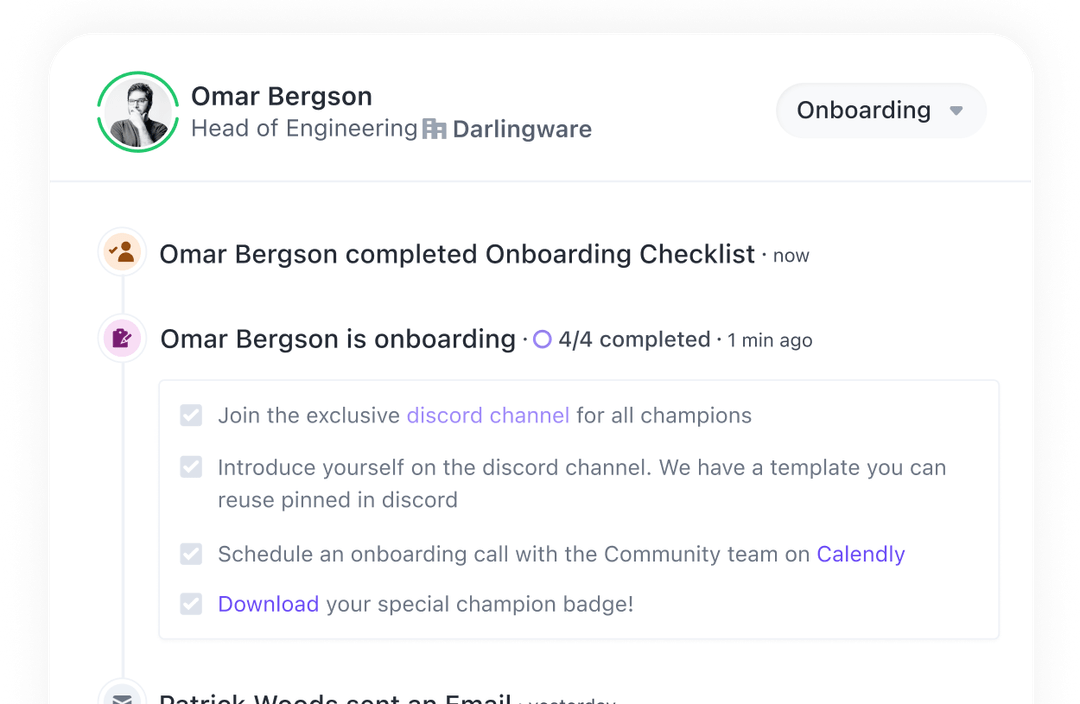Choosing the Right Community Tool for Developer Relations
I have been working with a client who is looking to gain a better understanding of what their community is doing across social channels and improve visibility of what key developers are doing. These days, it’s hard to go past Orbit or CommonRoom for fantastic community engagement. But which one should you choose? The short answer is that both are great, and you can’t go wrong with either. The longer answer is that there are some subtle differences that you should be aware of. Knowing these differences can make a huge impact on the success of your developer relations programs.
Community Management
Both Orbit and CommonRoom do a great job of offering tools and basic analytics to help teams grow, measure, and engage with community members. CommonRoom has a slight edge in how it handles interactions: discussion moderation, membership management, and inclusivity. Orbit tends to focus more on analytics vs. interactions, but I wouldn’t consider either offering a strong differentiator.
Integrations
Integrations make it easy to connect and monitor places where developers spend their time. Both Orbit and CommonRoom have an ever-expanding set of integrations with many common connectors like GitHub, YouTube, Discord, and Slack. CommonRoom tends to lean more towards providing connectors for more enterprise or “formal” channels that you would typically find in a medium to large business, whilst Orbit offers more trendy integrations to things like Dev.to, Notion, Product Hunt, and Krunch.
Spend some time looking at the integration offerings for yourself. This will likely sway your decision one way or the other. If you are a smaller startup, Orbit is likely a better choice as you probably use Notion. At the time of writing Orbit is the only one which supports integration here. (Both Orbit and CommonRoom support Zapier, so you could definitely ‘roll your own’ on CommonRoom if it is a deal breaker) Also, don’t underestimate the importance of connectors to analytics platforms like Grafana, if your use case centers around developer relations; knowing how key developers are using your project is critical.
Metrics & Analytics
It goes without saying that both platforms offer solid analytics for measuring channel interactions. And, with connectors for GitHub, it is easy to measure contributions to open-source projects, issues opened, pull requests, and more. Orbit perhaps has a slight leg up here with the amount of customization you can do to track community goals and objectives but both platforms do what’s needed.
Champions
Many clients I work with are interested in rewarding and recognizing developers in the community who have gone above and beyond. Whatever you call them, Champions or MVPs, establishing a recognition program is critical to community success and good feedback for product teams. If there is one thing that I have learned over 10+ years in dev rel is that developers thrive on recognition. Show developers in your community that you appreciate them and they will become your biggest advocates. Orbit and CommonRoom achieve this in similar ways: you connect channels and set milestones and filters to find the key developers. They work great although I find Orbit feels a bit more modern in its user interface.
Onboarding
Onboarding is an area that I don’t think enough people realize that community platforms do very well. The instinct is to use something like HubSpot to send a series of nurture emails, then watch click-through-rates but never really tie everything back to the developer. I’d strongly encourage you to check out using Orbit or CommonRoom for personalized onboarding. This can be especially useful when tied with post-sales support: a new key customer signed up for your product and you want to ensure developers in the company are onboarding well and doing the right things to ensure they get the most out of the product. You can even reward individuals for achieving milestones and gamify the results to build internal customer champions. Again, I think Orbit has the edge here mostly because their interface feels a little more modern, although CommonRoom does an excellent job of attribution by showing how community engagement impacts go-to-market team's success metrics.
Events
Depending on your program goals, event management may be a very important aspect of your developer relations strategy. Orbit supports Hopin and CommonRoom supports Meetup, plus both offer Zapier integration so you should have no problem retrieving event data. CommonRoom does a better job of deeper integration though. Once you connect Meetup, it is much easier to manage events, including livestreams, webinars, and virtual meetups.
Conclusion
So which is better, Orbit or CommonRoom? That’s not an easy thing to answer. Both are excellent solutions that will vastly improve insight into your community. Too often we look at them as competing in the same space. That’s not entirely wrong, although I’d propose they sit more as part of Venn diagram, with significant overlap, but in my experience, each platform is better suited for a slightly different goal.
If you are a medium to large company and you want to align community activities more with other parts of your business, CommonRoom is probably a better choice. If you are a smaller company still heavily iterating on your product and the community is more of an engagement channel for activities such as developer relations, product feedback etc, Orbit is a better fit. For anyone wanting to drive better community activation through, you truly can’t go wrong with either.



